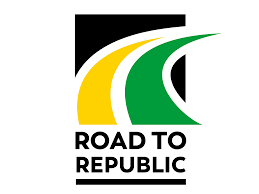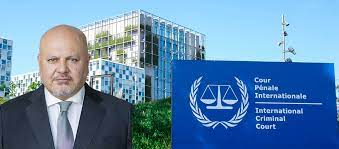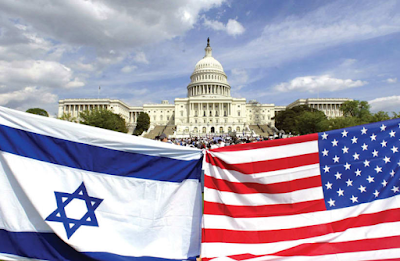Recently,
as is traditional every year in the first week of August, we celebrated our
national festivals of Emancipation and Independence. This normally a time when
pride in the black, green and gold is at its height, when we all get into that
patriotic spirit of revelling in what it means to be Jamaican and to enjoy the
trappings of nationhood. Yet there are
those who would make the claim that Jamaica is not sovereign and they’re not
saying because they think are economically trapped with high debt nor are they
saying it because they think we are under some kind of siege from some violent
external force. Their sole reason for asserting that Jamaica is not fully
sovereign is because we do not have a president.
Why this
the standard that these people choose for determining who has sovereignty and who
does not? The logic behind it rests on
the assumption that the world only recognizes a country as sovereign if it has
a president. This of course is not even remotely true as I can point to several
countries where that is most certainly NOT the case. Take for example Taiwan, a
country which has had presidents since 1949 yet majority of the world denies
that Taiwan is sovereign due to the One China Policy that requires them to
recognize that Taiwan is part of China, the fact that they have a president makes
no difference. Then there is South Ossetia, a country in eastern Europe which
has had several presidents since 1991, yet their sovereignty is also in
dispute, again the fact they have a president doesn’t not guarantee them international
recognition as an independent state.
There is also Catalonia which had declared its independence from Spain
unilaterally and tried getting the world to recognize it as a sovereign nation.
It should be noted that Spain does have a monarchy, but the Catalans choose not
to recognize King Felipe VI as head of state but opted instead to have a
president. This fact made no difference whatsoever to the internationally
community who could care less that Catalonia had a president, it still was not
counted as a marker of sovereignty. And of
course, I could not help but bring up the case of Palestine, a country
recognized by some but not all. A country that is fighting not only for
recognition but its very existence. The Palestinian Authority which in theory
has jurisdiction is again not universally recognized notwithstanding the fact
it has republican structure headed by a president.
Now that we have established that merely having a president, does not sovereignty make, let us look at the alternative that they wish to replace i.e. the governor-general. The so-called common wisdom goes that by having a governor-general we are telling the world that we are not fully independent. But is that so? Currently, there are only 14 countries that have a governor-general and all of them are members of the Commonwealth. These countries range from extremely larger nations such as Canada to very small countries such as Saint Kitts. Yet one thing they have in common is the fact they are all recognized as sovereign in the international community. We saw this clearly when President Trump threatened to annex Canada and make it America’s 51st state. Such sentiments drew wide condemnation within Canada and around the world as tonnes of nations immediately affirmed their recognition of Canadian nationhood, not British sovereignty over Canada, but Canadian sovereignty as its own unique thing in the world. This was further underscored when the Canadian government invited King Charles to open parliament in person and he did so, not as a representative of anything British but as King of Canada, opening Canada’s parliament upon the free invitation of Canada’s government. No one then dared claimed that Canada was British territory or a US State, its sovereignty was fully underscored not by a president (be it Trump or any other) but by rejecting presidencies entirely in favour of the Crown. And so it is there, so it is with every other country in the Commonwealth that has a governor-general, it is not and has never been a symbol of partial sovereignty instead only fully independent members of the Commonwealth have a governor-general and those who claim otherwise have no evidence to back up such claims.
So now that
we have firmly cemented that having a president doesn’t make you a sovereign
state and lacking a president doesn’t deny sovereignty, let us now look at that
qualifications of what are the components that define full sovereignty to see if
Jamaica fulfils these criteria. For this we turn to international law. The quintessential authorised document used
by legal and academic minds is the Montevideo Convention on the Rights and
Duties of States, which gives a pretty good grasp of how to understand this
subject as even countries that are not signatories to it still use its
definitions. According to Article 1 “The state as a person of international
law should possess the following qualifications: (a) a permanent population;
(b) a defined territory; (c) government and (d) capacity to enter into
relations with the other states.” It
is plain as day that Jamaica unequivocally ticks all 4 boxes.
But to
further cement the point let us explore further. Article 4 states the following
‘States are juridically equal, enjoy the same rights, and have equal
capacity in their exercise” This is important as it now calls into question
as to whether Jamaica is equal to other states within the global community of
nations. Can say for example, Trinidad do certain things in the international
sphere that Jamaica cannot because they have a president and we don’t? Is Dominica (a country younger than us by 16
years) more recognized among sovereign nations than we are, because they have
president and we don’t? I would love to see the evidence for that.
What about
Article 8 of the convention, which says “No state has the right to intervene
in the internal or external affairs of another.”? It has been a common
parlance among both the ignorant who don’t know any better and the wilfully
dishonest trying to push an agenda, to claim that the governor-general is an
agent of the British in Jamaica. Not only does that violate the convention but
violates our own constitution. So let me make this clear, the governor-general
of Jamaica is NOT an agent of the British, he represents the King OF Jamaica, IN
Jamaica, let me point to some excerpts from our constitution to underscore
that. In Section 32, subsection 1 it says, “The Governor-General shall act
in accordance with the advice of the Cabinet or a Minister acting under the
general authority of the Cabinet in the exercise of his functions”. Further
on in subsection 5 of the same section 32, the constitution refers to the
governor-general acting on advice of the prime minister after consulting the
leader of the opposition. In fact, every single time that the constitution
mentions the governor-general acting on advice or on directive, it is ALWAYS in
reference to a Jamaican. There is not a single clause in the constitution that
directs the governor-general to act on the basis of any authority that isn’t
Jamaican, those who claim otherwise need to reread our constitution, they’ll
find no proof to support their assertions.
There is zero
evidence whatsoever that declaring ourselves a republic will raise our standing
in the world as there is not a single country that does not already recognize
Jamaican sovereignty. The only people who are loudly proclaiming that Jamaica
isn’t already a free, sovereign and independent nation are those inside with
agenda to overthrow our constitution and replace it one of their own making.
Jamaica’s independence was declared on August 6, 1962, and contrary to the
untruths put out by republicans, it wasn’t a mere stepping stone on a stage to “true
independence” but rather it was and still is our true independence, that proud
day when our glorious flag was raised and our soul stirring anthem was played.
That night on midnight August 6, we sent a message to world, Jamaica is here, a
full-fledged nation, a parliamentary democracy, a constitutional monarchy and a
proud member of the community of nations through our membership of the UN, The Commonwealth,
The OAS, CARICOM and a host of other international organizations. The idea
spread by some that having a governor-general instead of a president makes us
less of a nation, is frankly incredulous at best and treasonous at worse since
it is their way of attempting to get us the Jamaican people to question who we
are.
At the end
of day, we Jamaicans already know who we are, we have never needed a president
to confirm it before, and we don’t need one now. Some say becoming a republic
will honour our ancestors, but I would remind them that it was those same ancestors who drafted
the constitution that we have now. We honour our fore-parents therefore not by
turning away from their legacy but by embracing it. If they wanted a republic,
they had a chance to do so and the fact they rejected it should tell us of the
wisdom of their choice. I can think of no better way to honour their memories
than to keep what they gave to us. What they did to get us to independence was
well done and to suggest that it wasn’t, is an insult to their memories. Their
struggle was to make Jamaica, free, sovereign and independent and they succeed.
Our struggle on the other hand is to make Jamaica, safe and prosperous, to
create a Jamaica that is full alignment with the Sustainable Development Goals,
and I dare say objectively speaking, a presidency is nowhere on the list of
priorities, nor should it be.
Again, I reiterate
my point, every single country which has a problem getting the world to
recognise that they are sovereign is already a republic and already has a
president. In contrast none of the 14 countries that have a governor-general
acting as head of state has any issues with the world recognising their full
independence. Jamaica’s sovereignty is not partial, but it is a real and
complete, both in law and in fact. No platitudes from The Crown’s adversaries can
change that fact, no matter how many times they claim otherwise. The lack of a
presidency should not be the cause of an identity crisis, so let’s not allow
those with an agenda to stir up one. There is no evidence whatsoever to claim a
presidency raises our standing in the world. Everybody on the planet already
knows and accepts Jamaica to be a real country, and that is a fact of which
every single Jamaican both at home and in the diaspora should be immensely
proud.

























